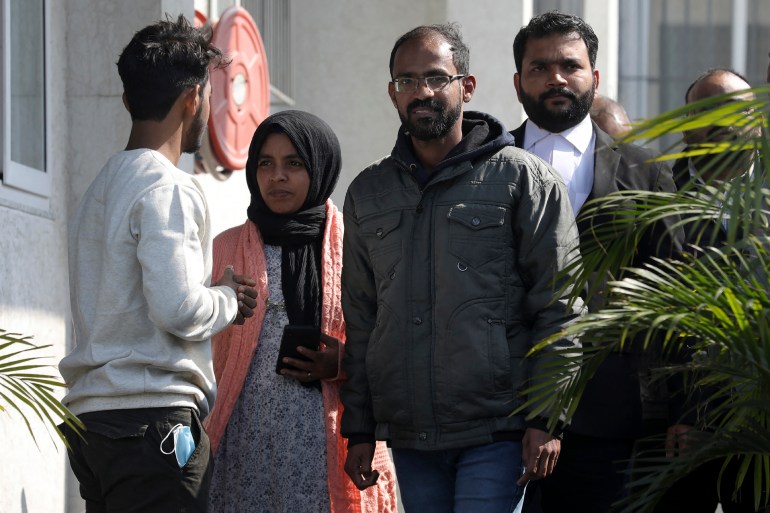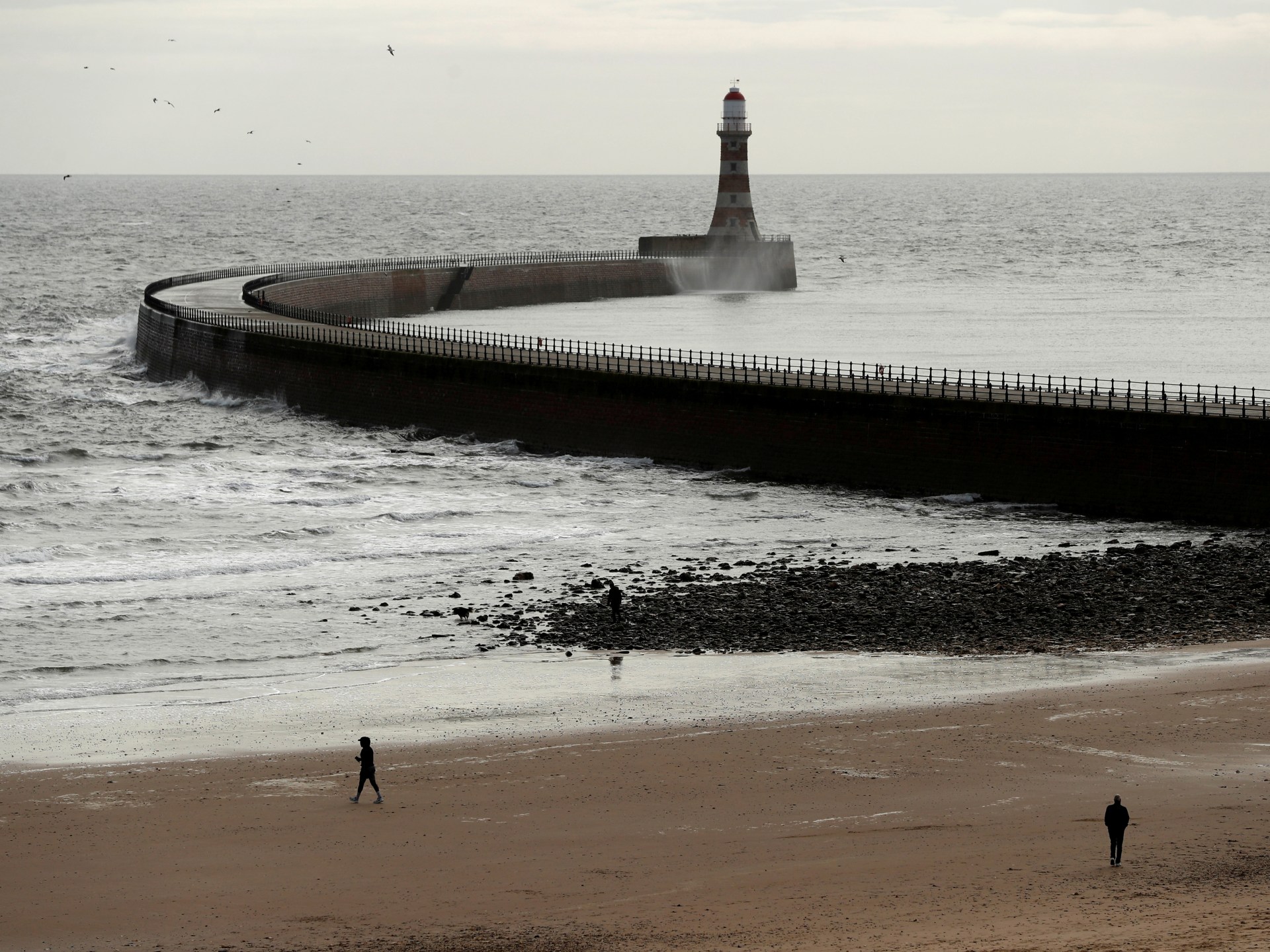Indian Muslim journalist walks out of jail after 850 days
Siddique Kappan, who spent 28 months in jail without trial, was charged under anti-terror laws for reporting on a gang-rape case.
Indian journalist Siddique Kappan, who spent two and half years in jail without trial, has walked out of prison more than a month after he was granted bail by a court in the northern Indian city of Prayagraj in a money laundering case.
He was initially charged under various sections of the Indian penal code. Anti-terror and money laundering charges were pressed later. He was granted bail in the Unlawful Activities Prevention Act (UAPA) case by the Supreme Court in September.
“I am happy to walk out of jail after almost 2.5 years,” 43-year-old Kappan told Al Jazeera. “I am hopeful to defend my part and prove my innocence.”
Journalist rights watchdog, the Committee to Protect Journalists (CPJ), welcomed Kappan’s release and demanded that all charges be dropped against him.
I had only gone to report. What is wrong with that? I was only carrying two pens and a notepad
Kappan was arrested in October 2020 in the northern state of Uttar Pradesh, where he had travelled to report on a high-profile gang-rape case. He and three others, including his driver, were accused of belonging to a Muslim organisation and eventually charged with conspiracy to incite violence.
His driver Mohammad Alam was granted bail last month while two others remain behind bars.
Kappan has maintained his innocence and says that he had only travelled from his home state of Kerala to do his duties as a journalist.
“I had only gone to report. What is wrong with that? I was only carrying two pens and a notepad,” he said about the case of a young Dalit woman gang-raped by upper-caste Hindu men in Hathras city in Uttar Pradesh.
The 43-year-old said that the past two years were a tough time for him and his family.

“My wife and three children struggled a lot. Yet, I have to thank people for the support me and my family received.”
Geeta Seshu, who advocates for press freedom in India, told Al Jazeera that Kappan’s arrest under tough “anti-terror” laws “is an extreme illustration of the fragility of the freedom of journalists to work in India”.
“While Kappan was picked up even before he could do his story, other journalists are constantly in the crosshairs for their writings,” Seshu, founder of the Free Speech Collective based in Mumbai, said.
Imprisoned #journalists in #India as of February 2, 2022:
1) Aasif Sultan (since August 27, 2018)
2) Gautam Navlakha (since April 14, 2020)
3) Sajad Gul (since January 05, 2022)
4) Fahad Shah (since February 4, 2022)
5) Rupesh Kumar Singh (since July 17, 2022) #PressFreedom— CPJ Asia (@CPJAsia) February 2, 2023
India has seen a sharp decline in media freedoms since the Hindu nationalist government of Prime Minister Narendra Modi took office in 2014.
Critical reporters often find themselves behind bars and hounded on social media by supporters of the ruling Bharatiya Janata Party (BJP).
According to the World Press Freedom Index released by Reporters Without Borders last May, India’s ranking dropped to 150 from 142 among 180 nations.
“The net result of this intimidation and persecution, both visible and invisible, is the erosion of the freedom of journalists to investigate and report important issues, to comment and inform public opinion, and to question those in power,” Seshu added.




